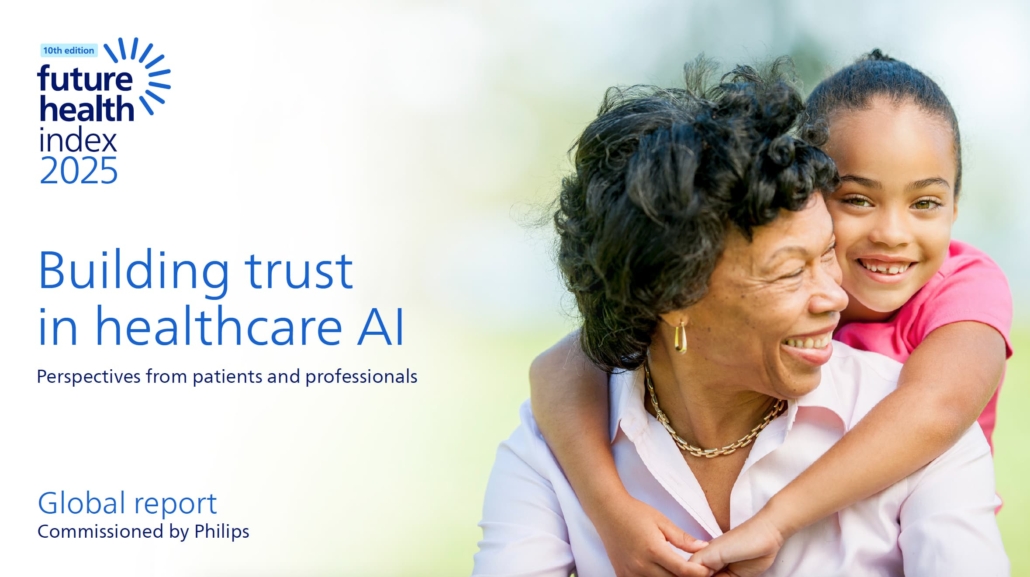Philips Future Health Index report reveals healthcare AI trust gap
A comprehensive global survey commissioned by Philips has identified substantial trust disparities between healthcare professionals and patients regarding artificial intelligence implementation in medical care, with professionals showing significantly greater optimism about AI’s potential to improve patient outcomes.
The latest Future Health Index report from Philips, encompassing responses from nearly 2,000 healthcare professionals and over 16,000 patients across 16 countries, has highlighted critical trust gaps that could impede AI adoption in healthcare systems worldwide.
Healthcare professionals demonstrate greater AI confidence
The survey revealed that 79% of healthcare professionals express optimism about AI’s potential to improve patient outcomes, compared with only 59% of patients who believe AI can enhance healthcare delivery. This 20 percentage point disparity becomes even more pronounced amongst patients aged 45 and older, where the gap extends to 25 percentage points.
“The need to transform healthcare delivery has never been more urgent,” said Dr Carla Goulart Peron, Chief Medical Officer at Philips. “In more than half of the 16 countries surveyed, patients are waiting nearly two months or more for specialist appointments, with waits in Canada and Spain extending to four months or longer.”
Patient comfort varies with clinical application
The research demonstrates that patient comfort with AI technology correlates directly with clinical risk levels. Whilst patients readily accept AI for administrative tasks such as appointment scheduling, their comfort diminishes significantly when AI is applied to clinical decision-making processes.
The most substantial trust gaps emerge in areas requiring clinical expertise, with patients showing particular reluctance towards AI involvement in documenting medical notes – a 22 percentage point difference compared with healthcare professionals’ confidence levels.
Healthcare system pressures drive AI adoption urgency
The survey identified significant operational challenges driving AI implementation needs. More than three-quarters of healthcare professionals report losing clinical time due to incomplete or inaccessible patient data, with one-third losing over 45 minutes per shift. This equates to approximately 23 full working days lost annually per healthcare professional.
“These inefficiencies amplify stress on already understaffed teams and contribute to burnout,” said Gretchen Brown, RN, VP and Chief Nursing Information Officer at Stanford Health Care.
Professional concerns about AI implementation
Despite their optimism, healthcare professionals harbour concerns about AI deployment. The survey found that 76% remain uncertain about liability issues when AI systems make errors, whilst 61% worry about data bias potentially widening healthcare disparities.
Additionally, although 69% of healthcare professionals participate in AI and digital technology development, only 38% believe these tools adequately meet real-world clinical needs.
Building trust through transparency and education
The research indicates that patients prefer receiving AI-related information from trusted healthcare sources rather than media outlets. Eighty-six percent of patients feel more comfortable with AI implementation when informed by their doctors, compared with only 50% when information comes from social media sources.
“To realize the full potential of AI, regulatory frameworks must evolve to balance rapid innovation with robust safeguards to ensure patient safety and foster trust among clinicians,” said Shez Partovi, Chief Innovation Officer at Philips.
The comprehensive study, conducted between December 2024 and April 2025, represents the largest global survey of its kind examining healthcare AI perspectives across diverse health systems and demographics.
- Download the Philips Future Health Index 2025 report here:
https://www.philips.com/a-w/about/news/future-health-index.html


